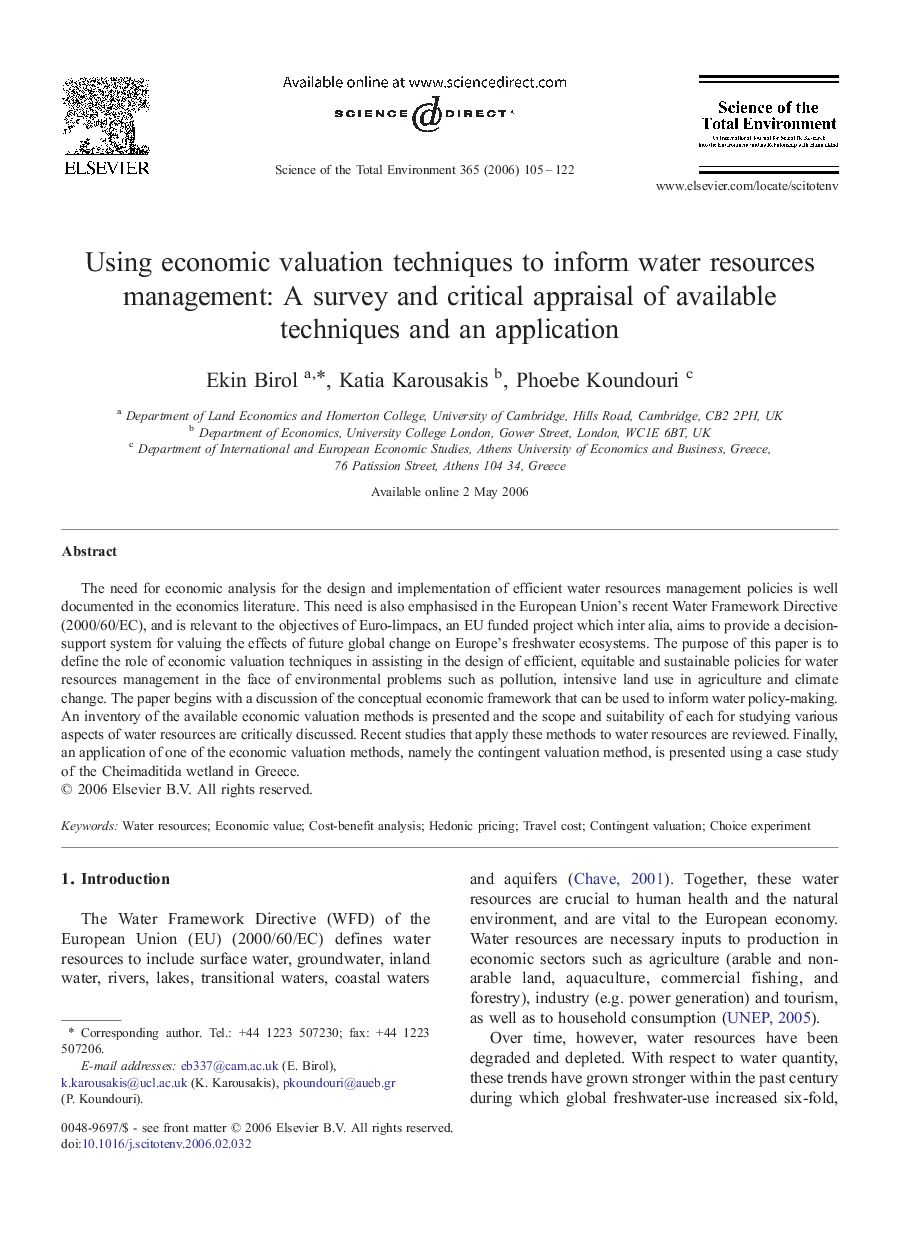| Article ID | Journal | Published Year | Pages | File Type |
|---|---|---|---|---|
| 4434296 | Science of The Total Environment | 2006 | 18 Pages |
The need for economic analysis for the design and implementation of efficient water resources management policies is well documented in the economics literature. This need is also emphasised in the European Union's recent Water Framework Directive (2000/60/EC), and is relevant to the objectives of Euro-limpacs, an EU funded project which inter alia, aims to provide a decision-support system for valuing the effects of future global change on Europe's freshwater ecosystems. The purpose of this paper is to define the role of economic valuation techniques in assisting in the design of efficient, equitable and sustainable policies for water resources management in the face of environmental problems such as pollution, intensive land use in agriculture and climate change. The paper begins with a discussion of the conceptual economic framework that can be used to inform water policy-making. An inventory of the available economic valuation methods is presented and the scope and suitability of each for studying various aspects of water resources are critically discussed. Recent studies that apply these methods to water resources are reviewed. Finally, an application of one of the economic valuation methods, namely the contingent valuation method, is presented using a case study of the Cheimaditida wetland in Greece.
